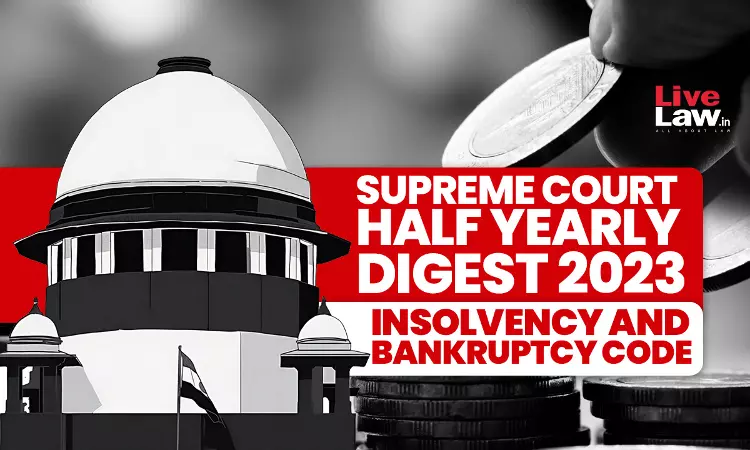Supreme Court Half Yearly Digest 2023: Insolvency And Bankruptcy Code
LIVELAW NEWS NETWORK
14 Nov 2023 7:21 PM IST

Next Story
14 Nov 2023 7:21 PM IST
Companies Act, 2013 - Upholds the constitutionality of Section 327(7) of the Companies Act, which excludes workers dues from priority payment in the event of liquidation of a company under the Insolvency and Bankruptcy Code 2016 - The object and purpose of amending the Companies Act 2013 and to exclude Sections 326 and 327 in the event of liquidation of a company under IBC seem to be that...
